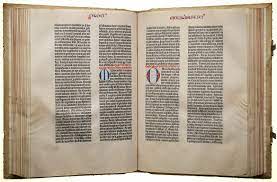
THE POPULAR ENCYCLOPEDIA OF BIBLE PROPHECY
RECONSTRUCTIONISM
Christian Reconstructionism, often referred to as Reconstructionism, is a Christian ethical and political movement rooted in a specific Calvinist theology. Unlike traditional Bible dictionaries, the term does not refer to a biblical character or location but to a modern theological movement founded in the mid-20th century by Rousas John Rushdoony.
Core beliefs
The core tenets of Christian Reconstructionism are based on an interpretation of the Bible as a comprehensive, authoritative blueprint for all areas of life, including civil government and law.
-
Theonomy: At the heart of Reconstructionism is theonomy, the belief that Old Testament law, including its judicial and civil statutes, remains applicable today. Reconstructionists argue that these divine laws should be the standard for all human authority—individual, family, church, and state. They believe that only the ceremonial laws concerning sacrifice were abrogated by Christ, while the moral and civil laws continue to be binding.
-
Postmillennialism: The movement holds a postmillennial view of eschatology, which is the belief that Christ’s second coming will occur after a future period of peace and righteousness on Earth. Adherents believe this “millennium” will be achieved through the faithful obedience of Christians who apply biblical law to all areas of society, eventually leading to the global Christianization of the world.
-
Dominion theology: Reconstructionists interpret the Genesis “cultural mandate” (Gen. 1:28) as a continuing command for Christians to exercise “dominion” over every aspect of creation and society, placing all of life under the authority of Christ.
-
Presuppositionalism: Influenced by the apologetics of Cornelius Van Til, Reconstructionism assumes the absolute truth of the Bible as a starting point. From this, it argues that all law and knowledge are ultimately religious and that any non-biblical law is anti-Christian.
Policy implications
From these theological beliefs, Christian Reconstructionism derives specific political goals:
-
The replacement of secular law with biblical law.
-
The use of capital punishment for certain offenses according to Mosaic law, including idolatry, blasphemy, and homosexuality.
-
The decentralization of power away from the civil government and toward the family and church.
-
The eventual dismantling of public education in favor of Christian schools and homeschooling.
Influence and controversy
While Christian Reconstructionism has never been a large-scale movement, its ideas have been influential within the American Christian right.
-
The movement helped popularize the evangelical homeschooling movement in the 1970s and 1980s.
-
Critics, including many mainstream evangelicals, reject Reconstructionism for its specific application of Old Testament law, arguing that it is both unbiblical and a radical form of theocracy. Mainstream Reformed theology, for example, typically distinguishes the judicial laws given to Israel from the enduring moral law for all people.
-
The movement is often associated with the broader and more ambiguous term “dominionism,” though Reconstructionists object to this label.
Online Bible Dictionary Reconstructionism:
Online Bible dictionaries and theological resources do not define “reconstructionism” as a biblical term, because it does not appear in the Bible
. Instead, “Christian Reconstructionism” is a modern theological and political movement that arose in the mid-20th century. It is associated with the idea of theonomy (“God’s law”), proposing that biblical law should be the standard for modern society.
Key tenets of Christian Reconstructionism
-
Theonomy: At its core is the belief that the civil laws of the Old Testament Mosaic covenant should be applied to modern civil governments. Unlike traditional Calvinism, which holds that only the moral laws of the Old Covenant are binding today, Reconstructionism argues that the judicial laws given to Israel have not expired.
-
Postmillennialism: This eschatological view posits that Jesus will return after a long period of significant Christian influence that successfully transforms society. This is contrary to the more common premillennial view, which expects the world to decline until Christ’s return.
-
Dominionism: Drawing from the “cultural mandate” in Genesis 1:28, Reconstructionists believe that Christians are called to exercise godly dominion over all aspects of society, including politics, art, education, and economics.
-
Sphere sovereignty: In this view, God has ordained different spheres of authority—family, church, and civil government—each with its own limited power and jurisdiction under biblical law. Education, for instance, is considered to be under the family’s authority, not the government’s.
-
Controversial applications: Early leaders of the movement advocated for the death penalty for a wider range of offenses than murder, including blasphemy, adultery, and homosexuality. However, some modern followers have moved away from this position, creating variation within the movement.
Origins of the movement
The movement developed in the latter half of the 20th century, largely influenced by the work of three men:
-
Rousas John Rushdoony: He is considered the founder of the movement. His 1973 work, The Institutes of Biblical Law, laid out the theological foundation for applying Old Testament law to modern society.
-
Greg Bahnsen: A key apologist for theonomic ideas, he provided much of the theological and philosophical support for the movement.
-
Gary North: Rushdoony’s son-in-law, North popularized Reconstructionist ideas and wrote extensively on Christian economics.
Controversy and influence
Despite having a small number of formal adherents, Christian Reconstructionism has been a source of controversy and has exerted disproportionate influence on parts of the American Christian right.
-
Critiques: Many evangelicals and Reformed theologians reject Reconstructionism, arguing that it misinterprets biblical covenants and wrongly applies Old Covenant judicial laws to Gentile nations today. Critics also warn against its authoritarian and legalistic implications.
-
Influence: Reconstructionist ideas have notably influenced the Christian homeschooling movement by promoting the concept of biblical authority over state-controlled education. Aspects of its dominionist philosophy have also been adopted by a broader range of conservative Christian movements.